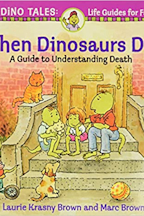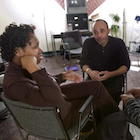Search results
Find the right therapist for you.
Powered by

You will be redirected to a third party site for results, which are provided for informational purposes only. Yahoo does not retain any information submitted via this form, and does not endorse or recommend any particular services or therapists.
- Text HOME to 741741 to reach a trained Crisis Counselor through Crisis Text Line, a global not-for-profit organization. Free, 24/7, confidential.
Grief is the acute pain that accompanies loss, and it can be complex and unpredictable. Learn about the difference between grief and depression, the stages of grief, and how to support a grieving person.
- What Is Grief?
- The Grieving Process
- The 5 Stages of Grief
- Symptoms of Grief and Loss
- Types of Grief and Loss
- Finding Support For Grief and Loss
- Taking Care of Yourself as You Grieve
- GeneratedCaptionsTabForHeroSec
Grief is a natural response to loss. It’s the emotional suffering you feel when something or someone you love is taken away. Often, the pain of loss can feel overwhelming. You may experience all kinds of difficult and unexpected emotions, from shock or anger to disbelief, guilt, and profound sadness. The pain of grief can also disrupt your physical...
Grieving is a highly individual experience; there’s no right or wrong way to grieve. How you grieve depends on many factors, including your personality and coping style, your life experience, your faith, and how significant the loss was to you. Inevitably, the grieving process takes time. Healing happens gradually; it can’t be forced or hurried—and...
In 1969, psychiatrist Elisabeth Kübler-Ross introduced what became known as the “five stages of grief.” These stages of grief were based on her studies of the feelings of patients facing terminal illness, but many people have generalized them to other types of negative life changes and losses, such as the death of a loved one or a break-up.
While loss affects people in different ways, many of us experience the following symptoms when we’re grieving. Just remember that almost anything that you experience in the early stages of grief is normal—including feeling like you’re going crazy, feeling like you’re in a bad dream, or questioning your religious or spiritual beliefs.
Since the experience of grieving following the loss of someone or something important to you tends to be unique to you, it’s difficult to label any type of grief as either “normal” or “abnormal”. However, there are types of grief that fall outside the expected symptoms and reactions described above. These include:
The pain of grief can often cause you to want to withdraw from others and retreat into your shell. But having the face-to-face support of other people is vital to healing from loss. Even if you’re not comfortable talking about your feelings under normal circumstances, it’s important to express them when you’re grieving. While sharing your loss can ...
When you’re grieving, it’s more important than ever to take care of yourself. The stress of a major loss can quickly deplete your energy and emotional reserves. Looking after your physical and emotional needs will help you get through this difficult time. Face your feelings. You can try to suppress your grief, but you can’t avoid it forever. In ord...
Learn about the types and stages of grief, how to heal grief and loss, and the myths and facts about grieving. Find out how to seek support, take care of yourself, and move on with your life after a loss.
Dec 20, 2021 · Grief is that emotional state that just knocks you off your feet and comes over you like a wave. Grieving necessarily has a time component to it.
- Denial. The first stage in this theory, denial helps us minimize the overwhelming pain of loss. As we process the reality of our loss, we are also trying to survive emotional pain.
- Anger. It is common to experience anger after the loss of a loved one. We are trying to adjust to a new reality and we are likely experiencing extreme emotional discomfort.
- Bargaining. When coping with loss, it isn't unusual to feel so desperate that you are willing to do almost anything to alleviate or minimize the pain. Losing a loved one can cause us to consider any way we can avoid the current pain or the pain we are anticipating from loss.
- Depression. During our experience of processing grief, there comes a time when our imaginations calm down and we slowly start to look at the reality of our present situation.
Feb 22, 2023 · Learn what grief is, how it affects you and how to cope with different types of loss. Find out about the stages of grief, the common emotions and physical symptoms, and the outlook for healing.
What is grief? Grief is a strong, sometimes overwhelming emotion for people, regardless of whether their sadness stems from the loss of a loved one or from a terminal diagnosis they or someone they love have received.
Grief is the anguish experienced after significant loss, usually the death of a beloved person. Grief often includes physiological distress, separation anxiety, confusion, yearning, obsessive dwelling on the past, and apprehension about the future.
People also ask
Is grief life threatening?
Is there a timetable for grief after loss?
Does grief have a time component?
What does grief feel like?






















